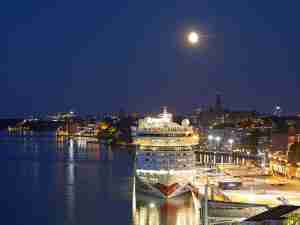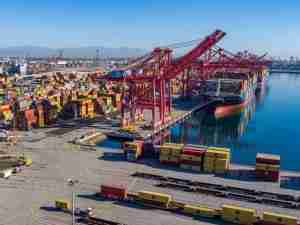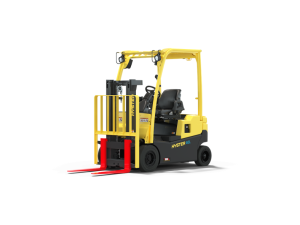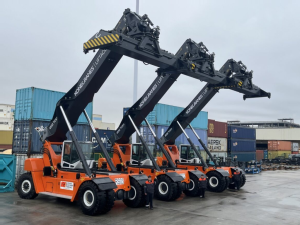Russia suspends some trade via Lithuanian port
By: Reuters | Mar 14 2014 at 12:51 PM | Ports & Terminals
Russia had suspended food product imports through Lithuania’s major port Klaipeda, the Baltic country’s prime minister said, a move local businesses saw as Moscow’s way of exerting political pressure at a time it is confronting Ukraine.
“Lithuania’s terminals have received a written note. A note was also sent to companies which export goods through port terminals to Russia,” Prime Minister Algirdas Butkevicius told reporters.
“The note said that exports through Lithuania, through Klaipeda’s port terminals, and maybe some other terminals, is no longer possible,” Butkevicius added.
Lithuania, like Ukraine, was formerly part of the Soviet Union and its relations with the Kremlin have often been tense, as have those of fellow Baltic states Latvia and Estonia.
The United States increased the number of its jets guarding Baltic airspace last week under a decade-old NATO air policing mission.
Russia sent six jet fighters and three military transport planes to ally Belarus, which borders Lithuania.
The acting director of Klaipeda Seaport Authority, Algirdas Kamarauskas, told Reuters that Russian authorities had explained the suspension of trade by saying some Lithuanian businesses were violating sanitary norms.
Tensions in the region have been growing as Moscow launched new military exercises near its border with Ukraine, while the European Union and United States were preparing sanctions over Russia’s plans to annex the Crimea region from Kiev.
President Vladimir Putin’s justification for intervening in Ukraine, to protect Russian speakers there, has alarmed many in the Baltic states, which have their own ethnic Russian minorities whose rights Moscow says are being undermined.
The Baltics and Poland were all part of the Soviet bloc until just over two decades ago. All are now members of the European Union and the NATO military alliance.
Last year Russia suspended imports of Lithuanian diary products, exerting pressure before a summit there in November at which Ukraine had been expected to sign a trade deal with the EU.
Ukraine baulked at the last minute, shelving preparations for the EU deal and instead pledging closer ties with Russia.
“This is a way for Russia to show that having political positions which do not meet their interests is punished in some way,” said Robertas Dargis, president of the Lithuanian Confederation of Industrialists.
“In Lithuania’s case punishment is usually through economic means, which we saw many times previously.” (Reuters)









